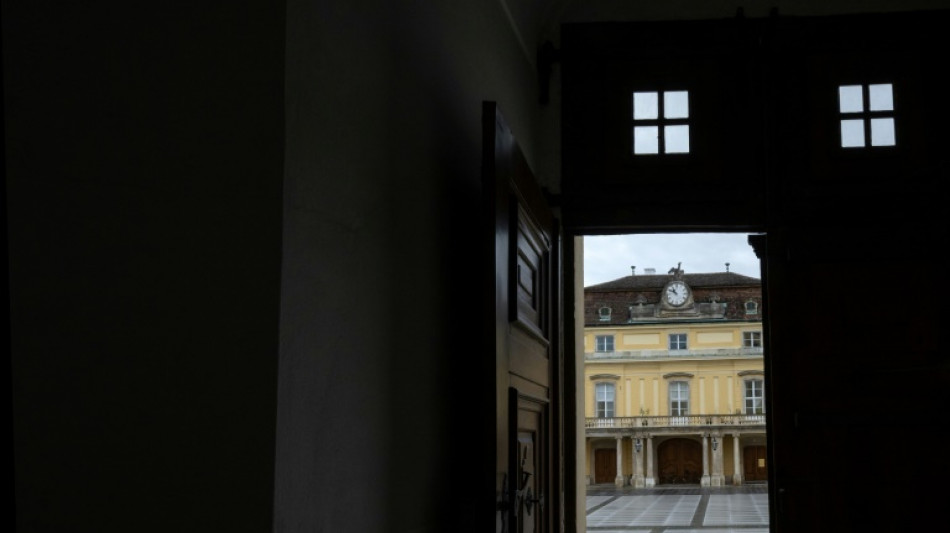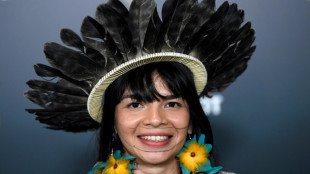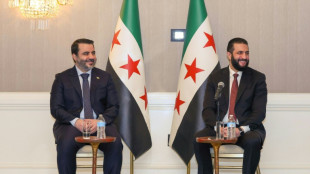
Austria hit with fresh spy claims after govt promises law change

Austria has long seen itself as a bridge between Moscow and the West -- remaining constitutionally neutral since 1955 and hosting numerous UN and other international institutions.
But in recent years it has had to deal with a slew of allegations concerning Russian espionage.
In the latest, researcher Dmitry Erokhin was accused of having links to Pravfond, a sovereign wealth fund which is under EU sanctions. It was set up by Moscow and is believed to have funded disinformation projects and defended espionage suspects.
Erokhin works at the International Institute for Applied Systems Analysis (IIASA) near Vienna and since 2019 has written on Arctic navigation, Chinese investment in Eastern Europe, misinformation and conspiracy theories.
He has collaborated with three other IIASA researchers, who all trained in Russia, according to information they shared on social media.
A recent investigation by Austrian daily Der Standard published in May alleged that he headed an association from 2022 until 2024 dedicated to "promoting cultural, legal, and human values in general", headquartered at the same address as the Russian Cultural Institute in Vienna.
Erokhin used this association to operate a contact point for legal aid for the Russian diaspora in Austria and Pravfond paid him, the paper alleged citing internal emails and documents.
The claims were part of a wider probe by journalist consortium the Organized Crime and Corruption Reporting Project (OCCRP).
That investigation led to the arrest of a Russian national linked to Pravfond in Denmark in June.
- 'No evidence' -
The IIASA, which was founded during the Cold War to promote scientific exchanges between East and West, said it conducted an internal inquiry into the claims.
"IIASA found no evidence of wrongdoing on Mr. Erokhin's part," a spokeswoman told AFP. "He is currently still employed by IIASA," she added.
The researcher "has denied involvement" with Pravfond and "intends to pursue legal action", the spokeswoman said.
Der Standard said it had received a lawyer's letter demanding Erokhin's name be removed from its online article but "no formal complaint".
"We see no reason to modify our report," the daily told AFP.
Erokhin himself did not respond to AFP requests for comment.
Austria's foreign ministry confirmed Erokhin "still holds a valid visa" as the government "has no further information from police" incriminating him.
- EU funds -
The case has demonstrated the difficulties in prosecuting suspected spying cases under Austrian law when they are not "to Austria's detriment".
The conservative-led government, which came to power this year, has vowed "to widen" the scope of spying offences.
But so far it has not given any further details.
According to its 2024 report, the IIASA received more than 19 million euros ($22 million) in contracts and subsidies, some of which came from the European Union.
In April, the European Union's Court of Auditors criticised the lack of oversight to ensure that entities funded with European money adhered to EU values.
A group of members of the European Parliament has been tasked to scrutinise NGO-awarded contracts to produce a report.
Its first meeting is due next month but it is not expected to probe IIASA -- for now.
The IIASA's more than 500 researchers come from all over the world, including Ukraine, Russia, Israel and Iran.
Its state members include countries in Africa, Asia and Europe. IIASA can no longer collect Russia's participation fees, even though the country remains a member, due to sanctions imposed on it.
F.Cha--SG

 London
London

 Manchester
Manchester
 Glasgow
Glasgow
 Dublin
Dublin
 Belfast
Belfast
 Washington
Washington
 Denver
Denver
 Atlanta
Atlanta
 Dallas
Dallas
 Houston Texas
Houston Texas
 New Orleans
New Orleans
 El Paso
El Paso
 Phoenix
Phoenix
 Los Angeles
Los Angeles


